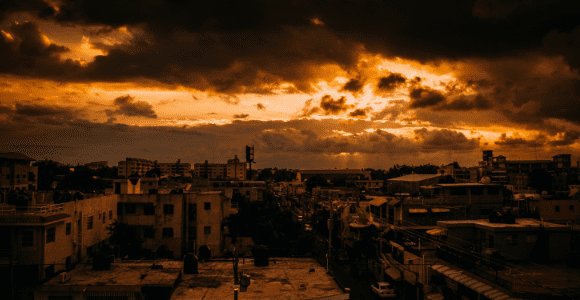Welcome readers! Please subscribe through the button on the right.

Our reading this week is from the gospel of Mark:
As Jesus was leaving the temple, one of his disciples said to him, “Look, Teacher! What massive stones! What magnificent buildings!” “Do you see all these great buildings?” replied Jesus. “Not one stone here will be left on another; every one will be thrown down.” As Jesus was sitting on the Mount of Olives opposite the temple, Peter, James, John and Andrew asked him privately, “Tell us, when will these things happen? And what will be the sign that they are all about to be fulfilled?” Jesus said to them: “Watch out that no one deceives you. Many will come in my name, claiming, ‘I am he,’ and will deceive many. When you hear of wars and rumors of wars, do not be alarmed. Such things must happen, but the end is still to come. Nation will rise against nation, and kingdom against kingdom. There will be earthquakes in various places, and famines. These are the beginning of birth pains.” (Mark 13:1-8)
By the time this week’s reading was written, the Jesus movement was living in the wake of destructions including the Jewish-Roman war (66-70 C.E.) that culminated in Rome’s razing Jerusalem and the Jewish temple to the ground. These followers of Jesus are trying to make sense of all these events.
Mark’s gospel therefore paints Jesus as critical of Jerusalem and the temple as the capital seat of the Temple State to the point of foretelling their destruction. Each gospel’s version of the Jesus story describes Jesus as critical of Jerusalem and the temple, and Mark even includes Jesus’ criticism as one of the charges brought against him in his final trials:
“Then some stood up and gave this false testimony against him: ‘We heard him say, ‘I will destroy this temple made with human hands and in three days will build another, not made with hands.’ Yet even then their testimony did not agree.” (Mark 14:57-59)
I want us to wrestle with why Jesus, a faithful Jewish male in early 1st century Judaism, would have been critical of the temple or Jerusalem? Think of the term “Jerusalem” here in much the same way as many say “D.C.” or “Washington” when speaking of the system of government centered there.
Christians have long interpreted the events fo 70 C.E. as God punishing the Jews for rejecting Jesus, and that’s been deeply harmful to our Jewish siblings. I want to offer an alternative interpretation. We’ll begin unpacking this alternative, next.
(Read Part 2)













